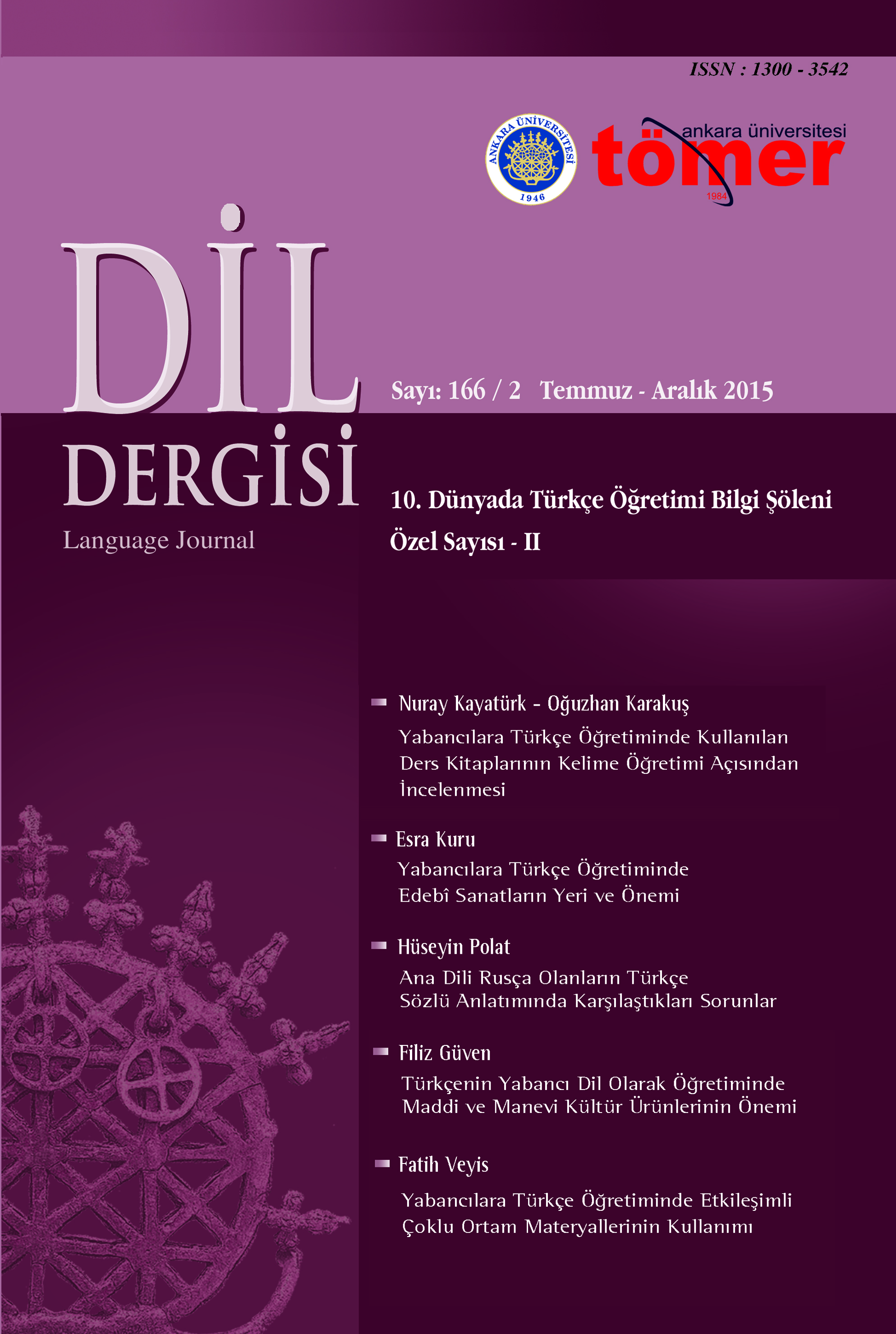Türkçenin Yabancı Dil Olarak Öğretiminde Maddi ve Manevi Kültür Ürünlerinin Önemi
The Importance of Moral Cultural Elements in Teaching Turkish as a Foreign Language
Author(s): Filiz GüvenSubject(s): Language studies, Education, Foreign languages learning
Published by: Ankara Üniversitesi TÖMER
Keywords: Turkish to Foreigners; Folklore; Culture; European Language Portfolio;
Summary/Abstract: It is not sufficient enough to learn only the grammatical rules of a language to master that language. It can be said that learning a language is also learning the material and moral cultural facts. In teaching a language as a foreign language, cultural aspects related to that language are also conveyed along with its grammatical structures. In the process of teaching Turkish to foreigners, using the folkloric materials might help them understand the deeper meanings of Turkish as well As it is known, in teaching a foreign language introducing the cultural environment that the language belongs to is among the aims of language teaching. Culture is behind everything that constitutes language. It is critical that each institution, where Turkish is taught as a foreign language, knows the importance of language-culture relationship and introducing the culture in teaching a language and acts accordingly. Language and culture are always intertwined and they nourish each other. Ones development depends on the other. In this article, the functionality of material and moral cultural elements in the process of teaching Turkish to foreigners will be discussed.
Journal: Dil Dergisi
- Issue Year: 166/2015
- Issue No: 2
- Page Range: 49-58
- Page Count: 10
- Language: Turkish

